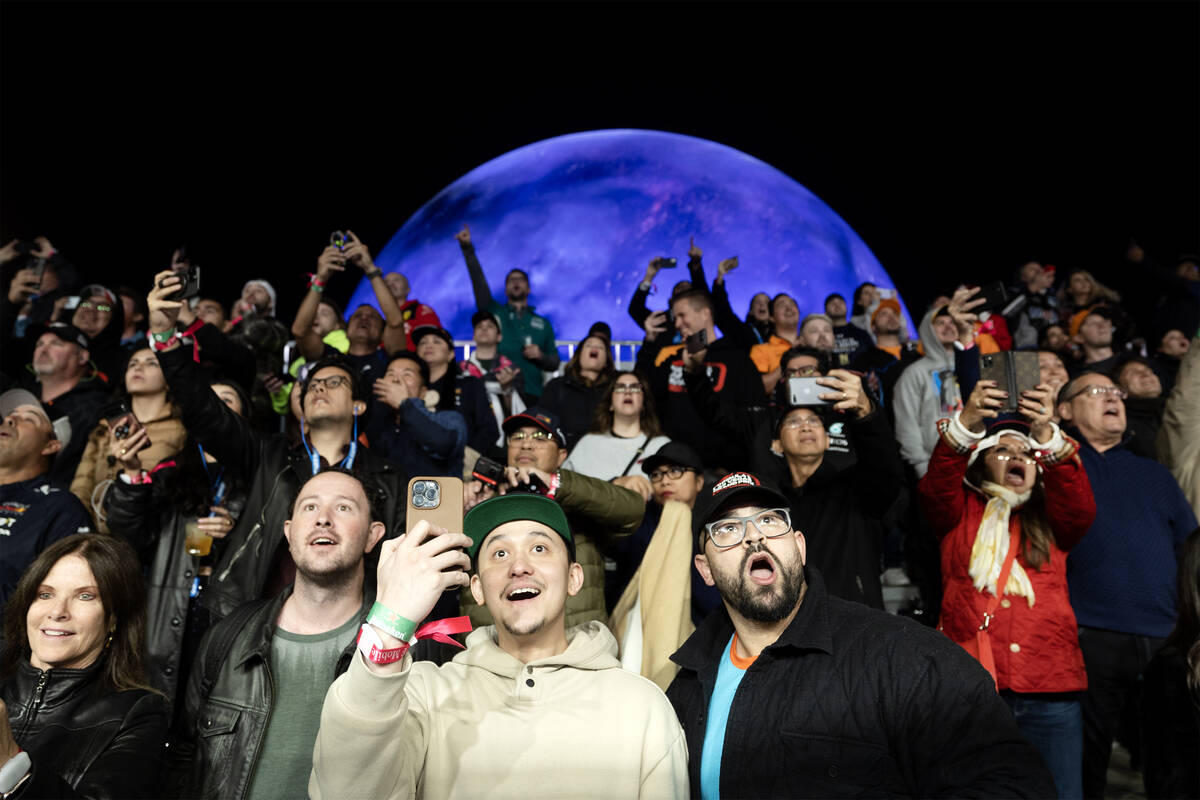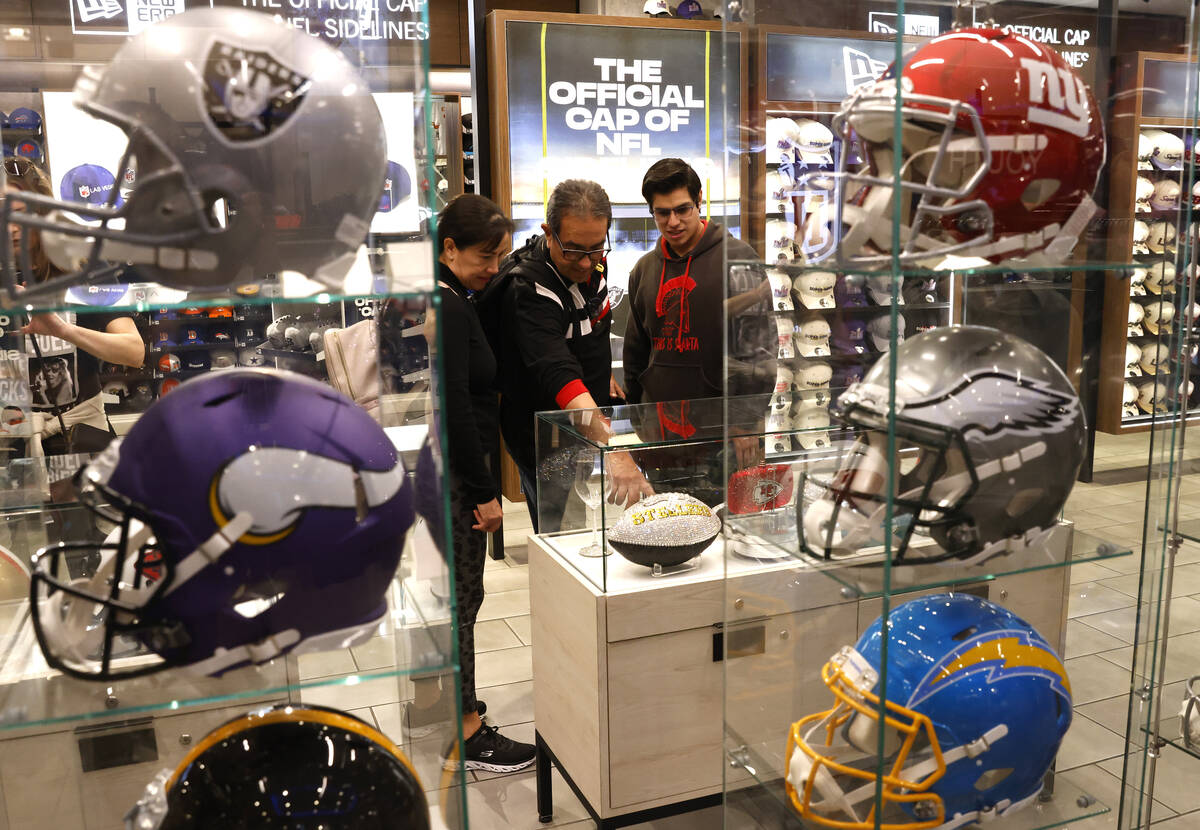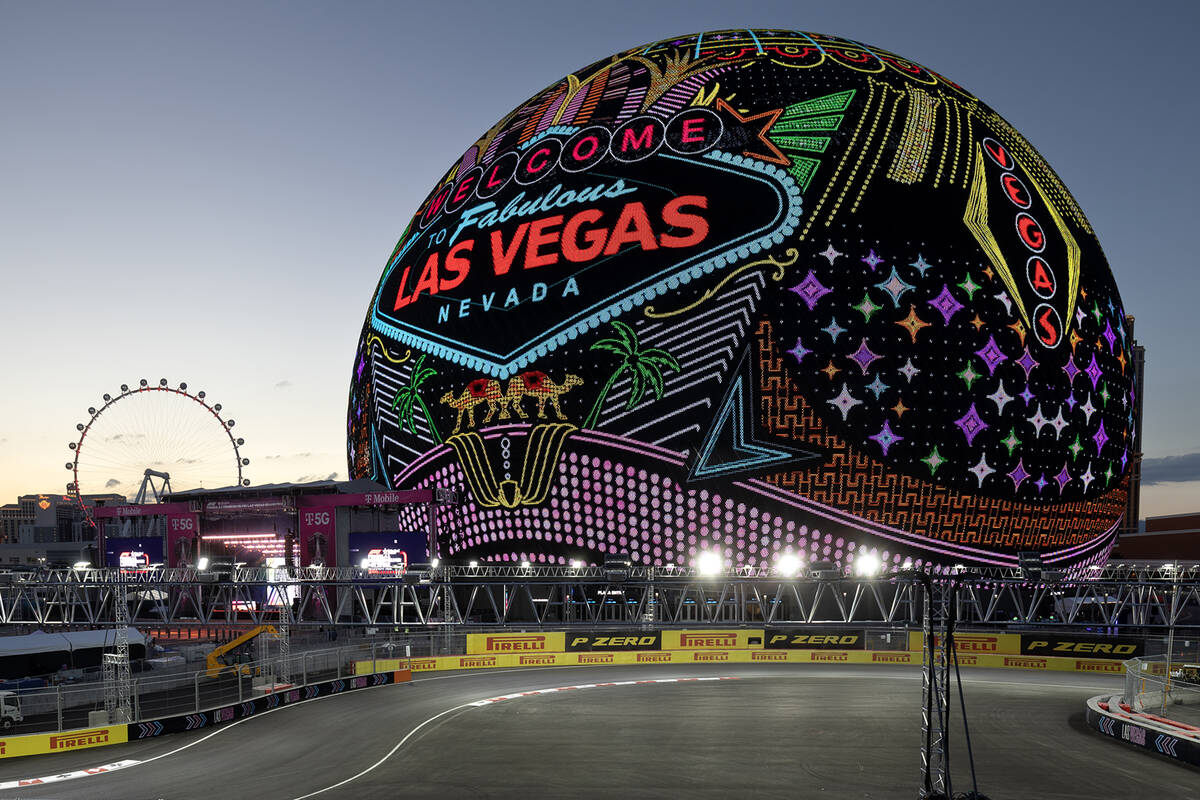Did Formula 1 or Super Bowl provide a bigger boost to Las Vegas?
Which provided the better economic bump to Las Vegas: the Formula One Las Vegas Grand Prix or Super Bowl 58?
It isn’t an easy analysis to make, considering economic impact numbers haven’t been fully calculated.
But experts who monitor the economics of the city’s megaevents say it’s an apples-and-oranges comparison in which some elements of Formula One were better while some aspects of the Super Bowl prevailed.
But one thing is certain from the analysts — both events exceeded expectations and both should be welcomed back.
“I think it depends on how you define success as a broad economic benefit across the board,” said Josh Swissman, founding partner and managing director of Las Vegas-based GMA Consulting. “I think Super Bowl takes the cake, although it is a little too early to call.”
Swissman noted that the Super Bowl is a known commodity to most consumers, but Formula One was somewhat of a mystery for many.
Amanda Belarmino, an assistant professor at UNLV’s William F. Harrah College of Hospitality, said the every-year return of Formula One would produce massive benefits over a longer period of time — that is, if negotiations between race organizers and Clark County stay on track. County Commissioners Tick Segerblom and Marilyn Kirkpatrick have indicated they intend to hold tighter reins on F1 planning in the future.
While all indications lead to the perception that the Super Bowl will return to Las Vegas in the future, there are no guarantees, while F1 appears to be locked in to returning every year for at least the next nine years. Formula One also lands at a time on the Las Vegas events calendar — the week before Thanksgiving — that will fill hotel rooms that had been empty.
“I think that the overall impact of hosting the Super Bowl may have a greater economic impact, even though we may not be able to directly attribute that impact to the event,” Belarmino said. “While the Super Bowl is always a profitable time of year for us, this year we were able to stretch that economic impact into a week instead of a weekend. I also think that we may find that the economic impact of the Super Bowl went into other parts of the city rather than just the Strip.”
Jeremy Aguero, a principal with Las Vegas-based Applied Analysis, noted that the organizers of F1 invested $500 million in a paddock facility off Koval Lane, while Super Bowl organizers used existing infrastructure to the benefit of the local community. F1’s paddock facility will be used to host non-race events in the future, an economic benefit to the city.
“It would appear, at least anecdotally, that the Super Bowl beat almost every expectation from initial economic impact statements,” Aguero said. “That’s going to put it at or near the greatest events we’ve ever had in Southern Nevada’s history.”
Aguero said an important part of the analysis will be spending per visitor — and that hasn’t been calculated for Super Bowl visitation.
“We had estimated Formula One would come in at about $3,500 per person per trip. They came in at about $4,100 per person per trip,”Aguero said. “Right now, we’re expecting the Super Bowl to be at or above those levels, which is also going to be really important.”
Belarmino said both events may be gifts that keep on giving.
“We are already seeing the ripple effects in terms of questions around our hosting future Super Bowls and (National Basketball Association Commissioner) Adam Silver saying that we are on the list for a future NBA team,” she said. “We have definitely turned the page in terms of public perception of Las Vegas as a sports destination, and while F1 is a larger international event, there is no larger domestic sporting event than Super Bowl. The impact on domestic travel is more likely to benefit regardless of the macro-economic environment.”
Contact Richard N. Velotta at rvelotta@reviewjournal.com or 702-477-3893. Follow @RickVelotta on X.

























